About 2,000 people gathered in front of the police station on College St to protest police overreach during the G20. Among them were Naomi Klein, Judy Rebick and scores of people who were detained over the weekend, most eventually released without charge.
After a round of speeches yelled through a megaphone (a more sophisticated sound system appeared to be on the fritz), protesters marched down College to University, then down Queen St and through the Toronto Jazz Festival to City Hall. From there, the march retraced its steps, ending at Queen’s Park.
There was an early report that police had detained someone in College Park, sparking fears of a repeat of the weekend: random searches, demands for ID and detainment without charge.
2,000 people gathered on College St between Yonge and Bay.
Toronto police ditched riot gear in favour of bike helmets.
Klein urged police to let the remaining detainees go.
Crowds shouted, among other things, “Peaceful protest!” at the police line.
Rebick said she’s been peacefully protesting for 40 years.
“The best revenge is at the polls. Vote.”
The march snaked past the Canadian Opera Company on Queen.
“Peace fail.”
The march ended at Queen’s Park, at least as strong as it had started. Cyclists were encouraged to head over to the Eastern Ave Detention Centre, where up to 200 people were still being held.
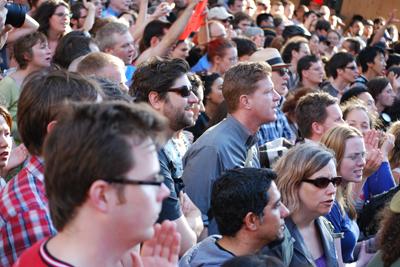
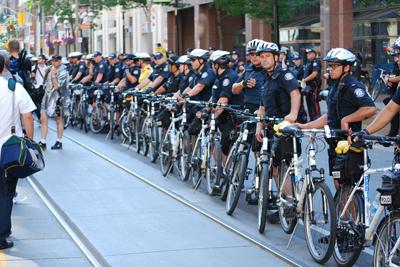
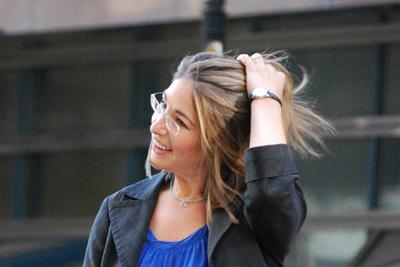
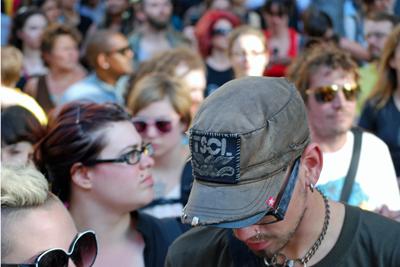
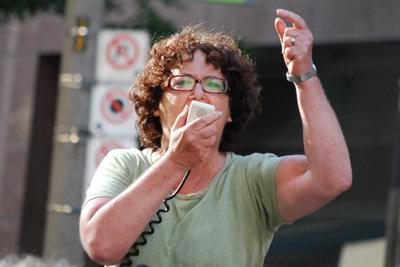
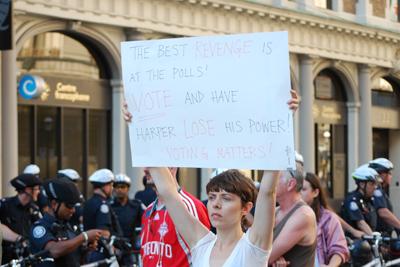
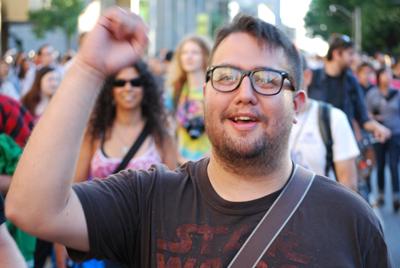
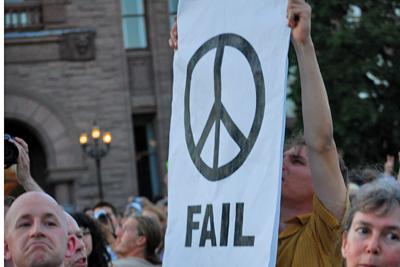
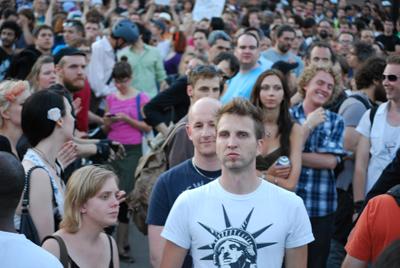

 Why you can trust Xtra
Why you can trust Xtra


